Why Drama?
Article by GERALDINE MITCHELL Cert Ed.,DipEd.,MA.,MSc,
Educational Psychologist
Success in education and subsequently in life has many variables. Some of these depend on knowledge and facts which are reliably retrievable but how simple it would be if that were the only consideration. Pupils can receive the same facts in the same style and all teachers know the outcomes can be very different. The skill of manipulating those facts and reasoning with them requires something else. Forming new solutions, using creative thinking, innovation and the ability to take a team with you, depend on a mysterious combination of self-esteem, motivation and confidence.
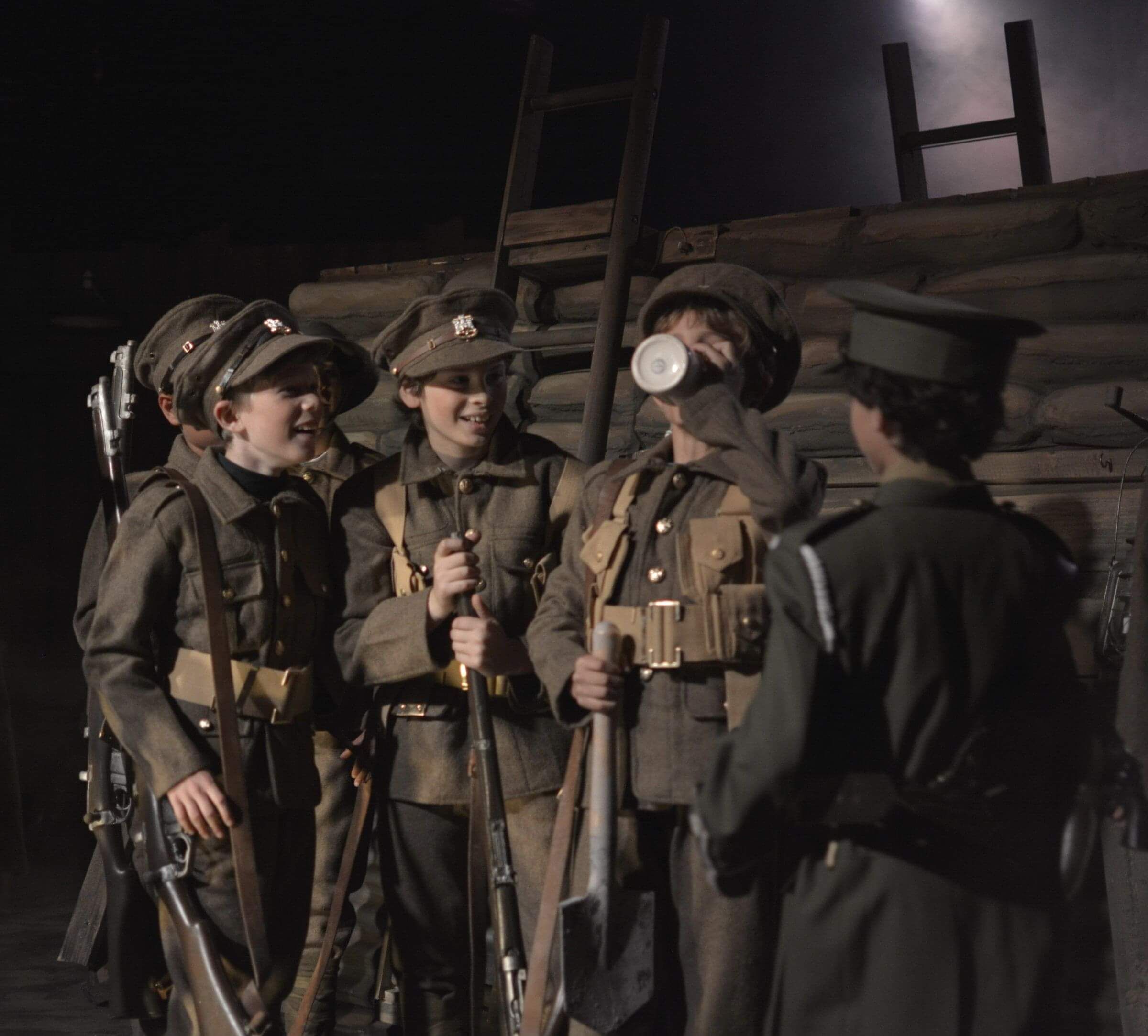
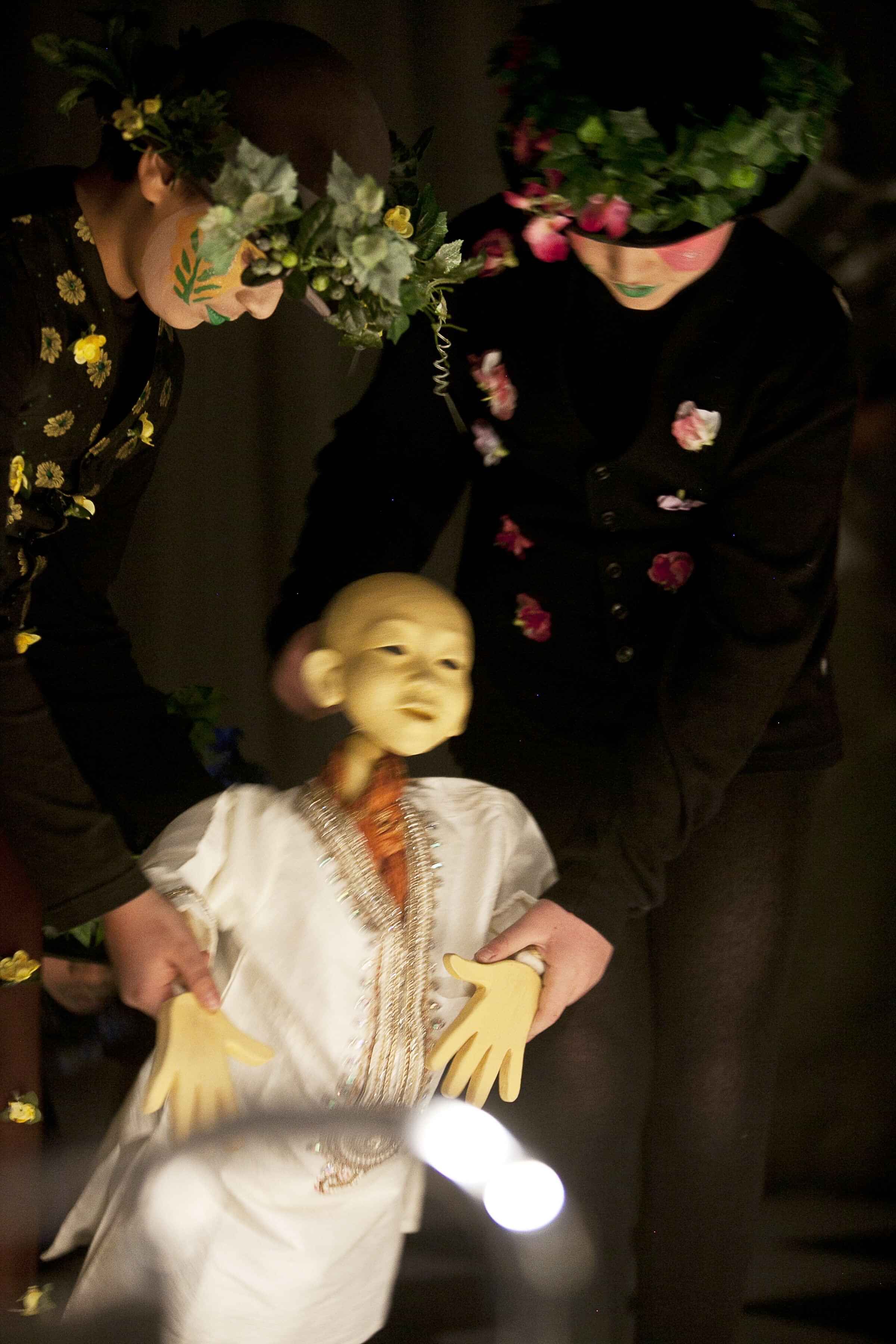
A Rich Setting
Drama productions provide a rich setting for these seeds to grow. The very act of considering ‘being someone else’ begins the practical lesson in empathy. If you cannot stand in someone else’s shoes can you manage a team successfully?
While the pupil is imagining the feelings of this ‘someone else’ he is surrounded by his peer group who are thinking through the same notion. ‘This is me – that is him’ ‘That is him in character – this is him as himself’. Inevitably this also raises questions about the best choices in a moral or practical dilemma: ‘What would I have done if I had been him?’ Meta analysis of achievement in education and behaviour regularly find self-esteem the key factor of correlation with outcomes.
The enhancement of self esteem is created by being ‘known and valued as an individual’, not the individual we want them to be but the unique individual they really are. The drama process feeds the sense of being ‘known and valued as an individual’ both to himself and to the group.
Enhancement Of Self Esteem
The pupil becomes part of a team with a goal in sight. However small the contribution, it is part of the overall achievement, an exercise in delivery that has required all to ‘play their part’. They begin to understand the effect of themselves in a microcosm of the world they will enter as adults.
On the way to the final applause personal hurdles will be overcome, fears will be faced, comfort zones will be ventured out of and beautiful examples of ‘in the moment’ problem solving will have happened. Through these experiences, all very difficult to create in a classroom, the child learns to surprise himself by how independently he can function while being a strong team player. He may have learned ‘I am the one who rescues others’, ‘I am the one who learns his lines solidly’, ‘I am the one who is totally reliable’ or ‘I am quiet and shy but I overcame my fears and played my part’, ‘I am a leader’ or even, very rarely ‘I am the one the audience cannot take their eyes off because I get the emotions involved in this and I can convey them truthfully’. This self-knowledge builds real self esteem based on a solid foundation and we know it is real self esteem which underpins success in education.
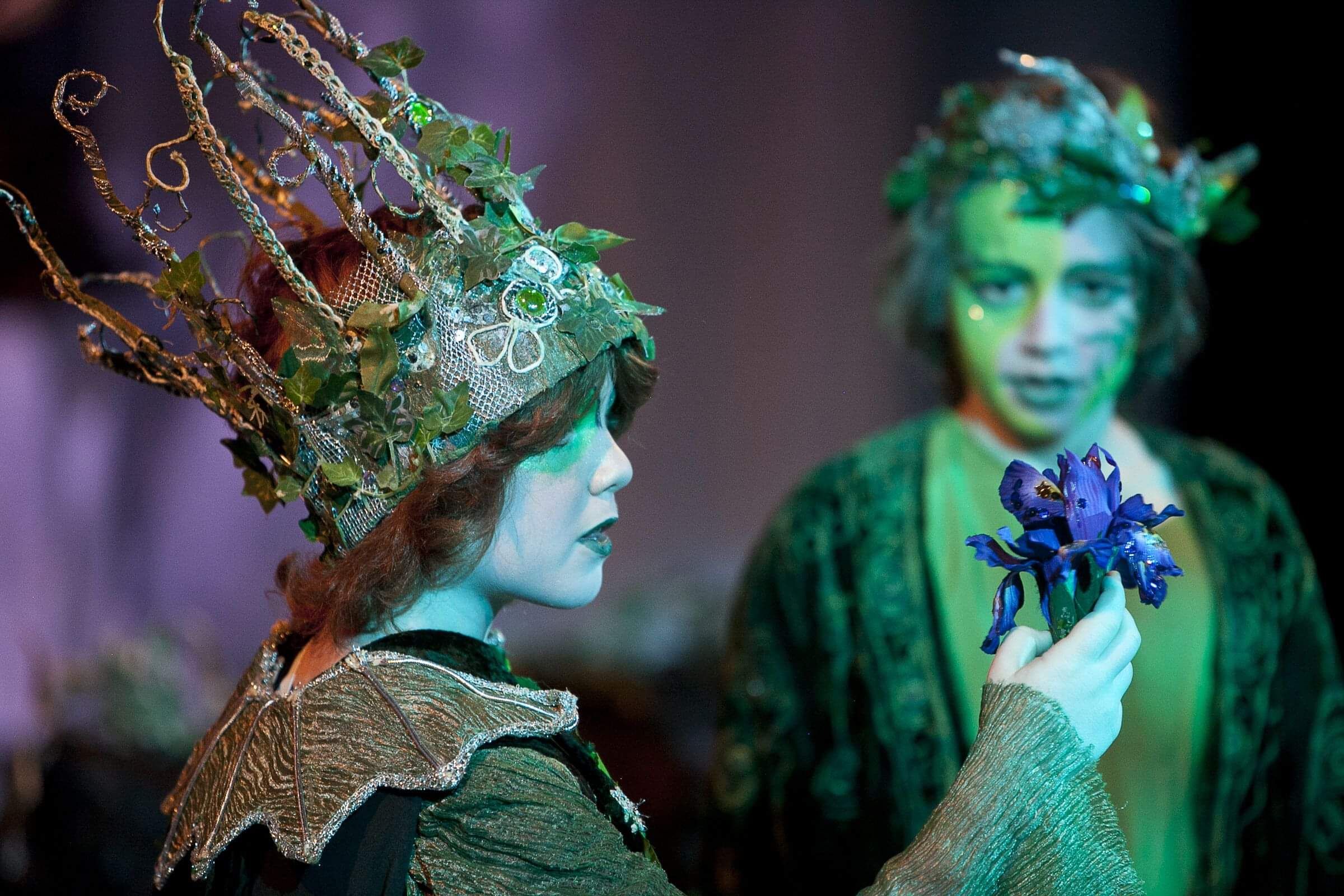


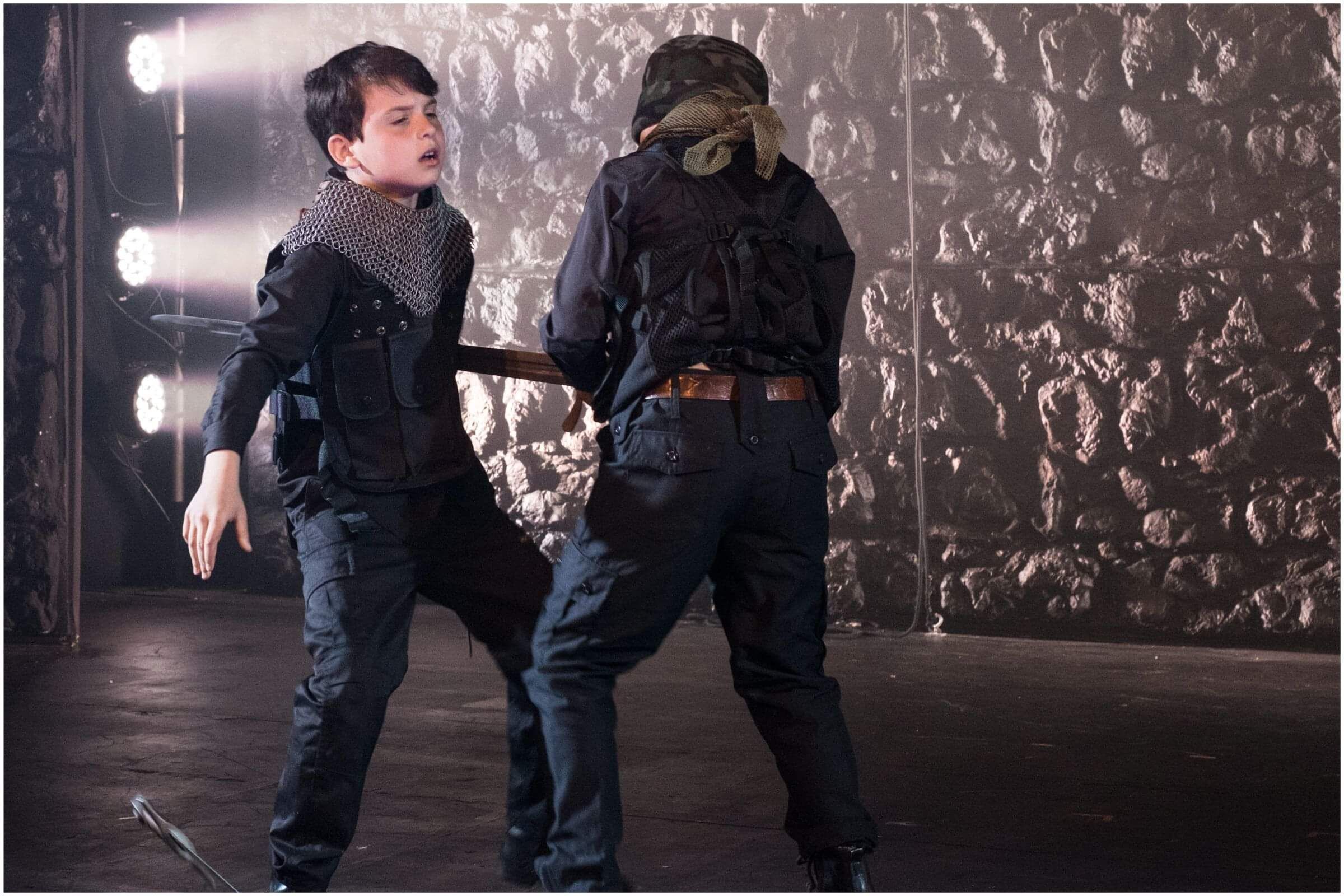
Skillful Teaching
When handled skillfully by a dedicated teacher, involvement in the drama production can provide the evidence needed by a child that can lead to an expansion of aspiration ‘If I can do this, even though I thought I couldn’t, then maybe I can do that’.
Of course if teachers expose the children, poorly prepared for the performance, very little of the above will take place. The teacher has to create a success for the children, which is a skilled and complex job of education. The performance is the icing on the cake, the real education started the moment the cast first met in the first rehearsal.
The Performance
However, the performance is a public statement of the team’s success. They are out there on the stage alone, with no adults. They are working together to achieve their goal. The public nature of it means that parents unable, from their seats, to advise, check or control have to sit back and see their child stand alone and be part of something, maybe to a standard the parents had not realized they could reach. Children put far more store in the subtle facial expressions of their parents than their words . Delight, surprise, admiration and pride from parents are fuel to self-esteem development.
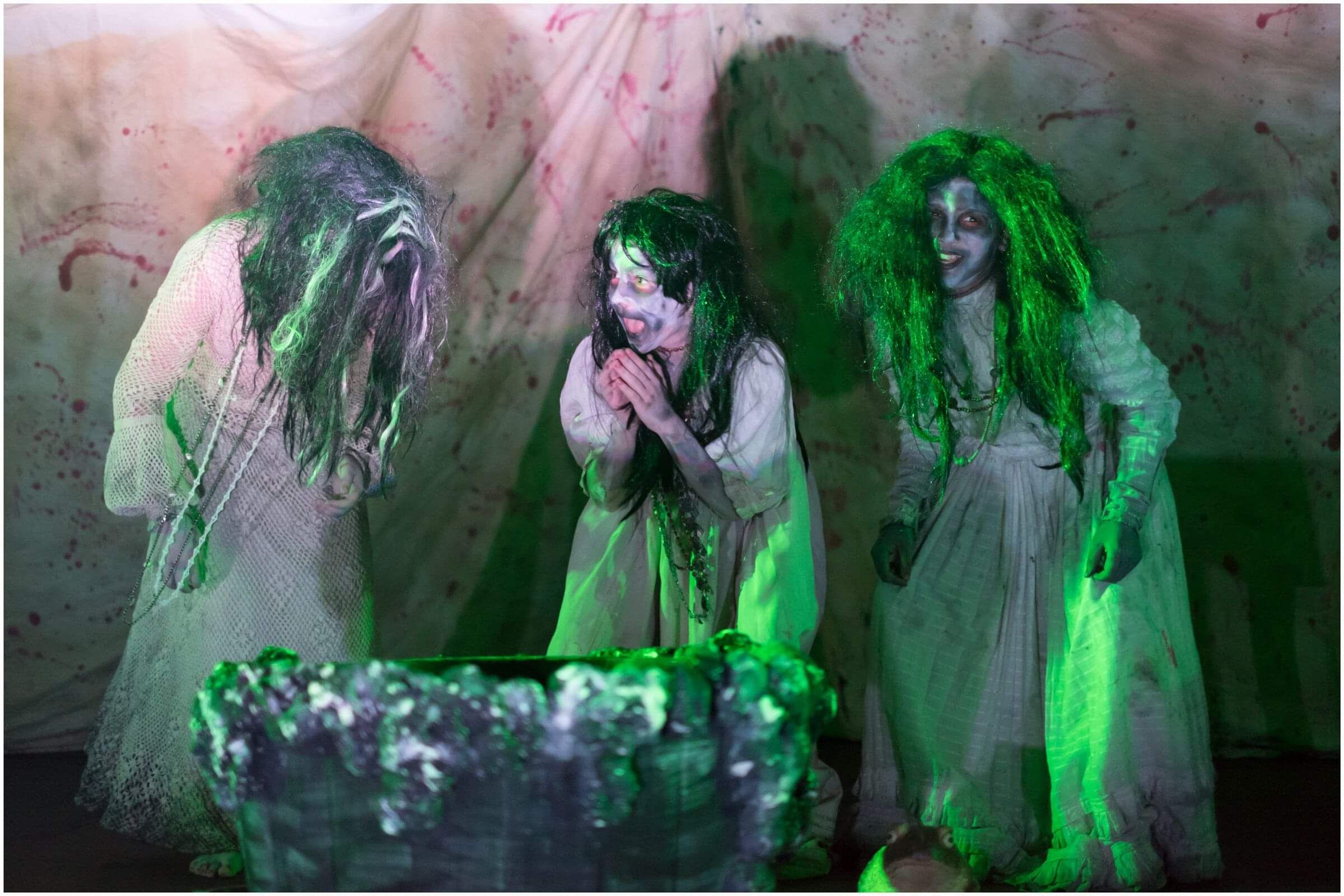
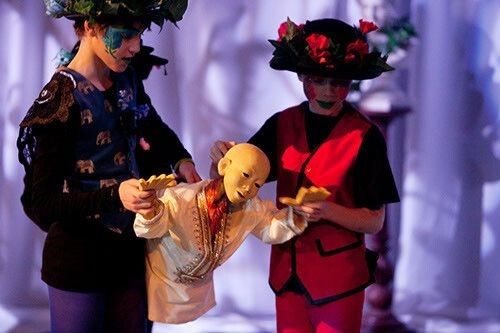
The Real World
The real world requires skills of delivery, ability to command an audience, presentation skills, empathy, negotiation, self-awareness, team playing, on the hoof problem solving and a sharp reliable memory.
The drama production provides a practice ground for all of this. It is a joint human endeavour that embarks on a journey and requires finishing, learning key skills on the way and ending with a point of success that can be filed away in each child’s memory as ‘I can surprise myself’ evidence.
GERALDINE MITCHELL
Cert Ed.,DipEd.,MA.,MSc
(Author of Practical Strategies for Individual Behaviour Difficulties)
